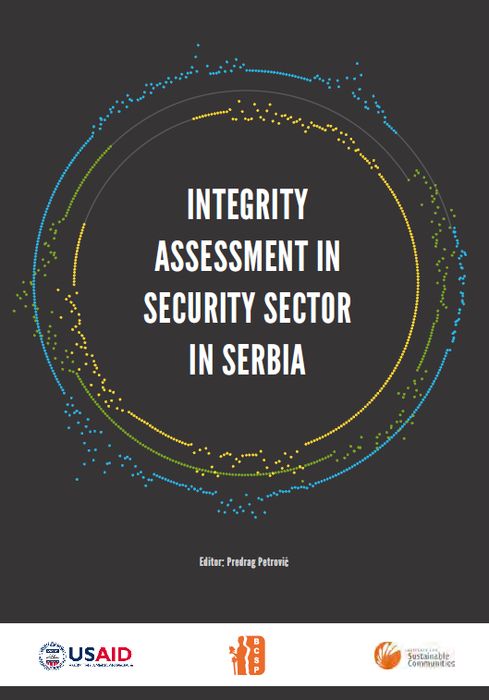Integrity Assessment in Security Sector in Serbia
Integrity Assessment in Security Sector in Serbia
Author(s): Predrag Petrović, Saša Đorđević, Katarina Đokić, Vladimir Erceg
Subject(s): Politics, Governance, Security and defense, Penal Policy, Corruption - Transparency - Anti-Corruption
Published by: BCBP Beogradski centar za bezbednosnu politiku
Keywords: transparency; police corruption; police management; whistleblower protection; public opinion; anti-corruption; security information agency; State Audit Institution; security and defence strategies
Summary/Abstract: Over the past 14 years of police reform an opportunity has been missed to build a strong institutional framework for the work of the Ministry of the Interior. The consequence thereof is the unbalanced development of areas pivotal to police integrity. Thus, policing transparency has improved, and an Integrity Plan and Development Strategy have been adopted. However, police integrity is mostly influenced by politicisation and inappropriate management of human resources. The police force in Serbia is losing its operational independence and accountability due to the interests of political parties. The organisational unit responsible for the management of human resources is merely a technical body. In addition, effective planning of budget spending is not possible because in excess of 80% of the MoI budget is earmarked for wages. Finally, neither does the harmonised system of internal police control work that should simultaneously ensure that police act in accordance with the rules and to increase the police integrity. External policing oversight remains lax.
- Print-ISBN-13: 978-86-6237-096-9
- Page Count: 148
- Publication Year: 2014
- Language: English
- eBook-PDF
- Table of Content
- Introduction

